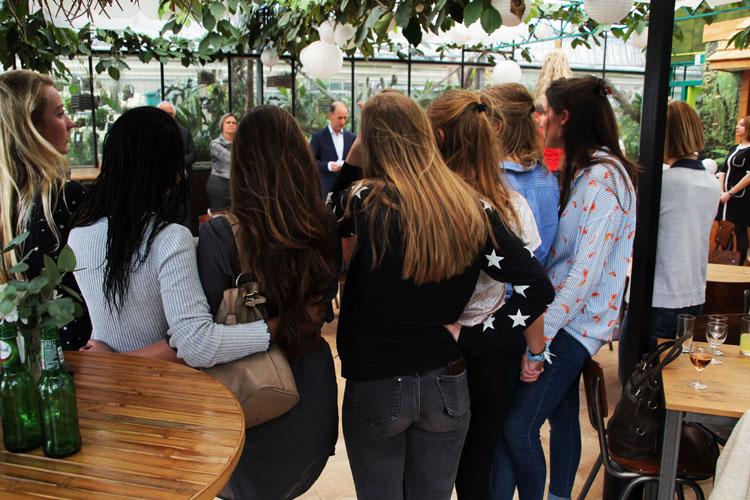Record turnout at University Council elections

The Free Student, a student party that had stated they wished to introduce a whole new sound in student representation, will not be represented in the University Council, as was shown by the results of the elections, last Friday in the Botanical Gardens. The newcomer in employee representation, the Utrecht PhD Party (UPP), did manage to win two seats in the council.
In student representation, nothing will change the next two years. VUUR will keep their seven seats, and the Party for the Utrecht Student (PvdUS) will keep their five seats. The parties both said they were happy with the election’s results.
Highest turnout ever
There was a lot of enthusiasm among the student representatives in regards to the remarkably high turnout. Almost 8000 students voted, surpassing the 2014 record (25.9 per cent). That year, the elections lasted five days instead of three. Before 2014, the turnout was always around 20 per cent. The past two years, however, only 18 per cent of students bothered to cast their votes.
Veterinary medicine student Sonja de Wit, fifth on VUUR’s list of candidates, received the most votes (624), followed by VUUR’s number 2, Gwenn Jongebloed, who received 606 votes. The two will represent VUUR in the University Council along with Joost Gadellaa (Faculty of Law) and Sven Rouschop, Jonathan Steinebach, Robin Wisse and Emma Carpay (all Faculty of Humanities).
Law student Franka Baardman was the most popular representative for the PvdUS. She will be joined in the Council by fellow party members Nicky Cornelissen (Science), Juliëtte Smits (Humanities), Guus van Marwijk (Law) and Derek de Jonge van Zwijnsbergen (Science and Law).
Lower turnout in employee representation
The turnout in employee representation was much lower than the year before – only 33.8 per cent of employees cast their vote, compared to 38 per cent in 2015. Still, the turnout is comparable to that in the elections of 2011 and 2013.
The two candidates of the new Utrecht PhD Party (UPP) both managed to win a seat in the council. In the alpha/gamma district, Stephanie de Smale was elected for the UPP. Her UPP colleague Nico Naus was nine votes short of the minimum threshold, but made the council anyway, thanks to a recent change in the electoral regulations that makes someone eligible for a remaining seat if a candidate has 2/3 of the votes necessary for the minimum threshold.
Changes in regulations had other surprising consequences. As the minimum threshold for an individual (within a party) was lowered, the numbers 2 and 3 on the list for VLAM’s Science representatives (Joke Daemen and Johan Rozenbrand) were elected, but the number 1 (Gert Folkers, who had been the financial expert within the Council the past few years) was not. A similar thing happened with the votes for the administrative staff (OBP) as VLAM’s number 6 (Laura Tankink) was chosen above her colleagues Jan Hunink and Liesbeth Potters.
The staff representation for the next two years will also include VLAM veterans Joop Schippers and Diederick Raven (alpha/gamma). Former Faculty of Geosciences council member Frank van Rijnsoever (alpha/gamma) is a new face in the Council. Three newcomers join the Council for the OBP: union man Marco Veloo (Sciences), Syl Blad (Sciences) and Wim de Smidt (Law).
The final seat will go to the Faculty of Medicine, which held its first elections this month, in which policy officer Erna van Wilsem prevailed over PhD candidate Roland Bertans for the seat.